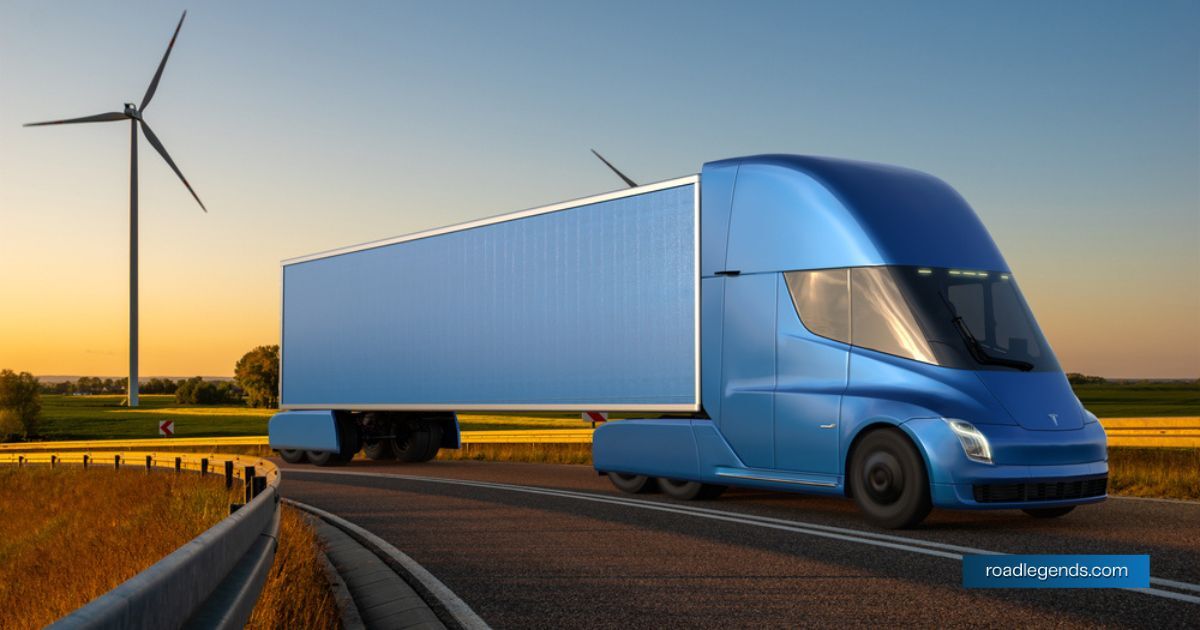
5 Models of Electric Trucks with Current Trends and Opportunities
In recent years, there has been a growing recognition of the need for sustainable and environmentally friendly transportation solutions. This shift towards sustainability has prompted significant developments in the transportation industry, including the emergence of the best electric trucks as a promising alternative to traditional diesel-powered vehicles. As we delve into the advancements and implications of electric trucks, we witness a transformative era in the transportation landscape.
The best electric trucks offer numerous advantages over their conventional counterparts. They provide cleaner and more efficient transportation options, reducing greenhouse gas emissions and improving air quality. In terms of technology, the best electric trucks have undergone remarkable advancements, with improvements in battery capacity, charging infrastructure, and overall performance. These advancements have alleviated concerns about range anxiety and charging limitations, making electric trucks a viable option for various applications.
The impact of the best electric trucks extends beyond the transportation sector. In the logistics and delivery industry, electric trucks have the potential to revolutionize last-mile deliveries, ensuring efficient and sustainable urban logistics. Governments and private entities recognize the importance of infrastructure development to support electric trucks, leading to investments in charging networks and fast-charging stations along highways.
However, challenges remain on the path to widespread electric truck adoption. Truck driver training programs are crucial to equipping truck drivers and technicians with the necessary skills to handle the unique maintenance and charging requirements of electric trucks. Moreover, the widespread adoption of electric trucks poses challenges to the energy grid, requiring smart grid solutions and load management strategies to balance power demand.
Electric trucks 2023: Estimated trends for the future
In 2023, electric truck technology will have experienced significant advancements, with manufacturers investing in research and development to boost battery capacity, charging infrastructure, and overall performance. The result is a more powerful, efficient, and reliable fleet of electric trucks on the road.
- Rapid charging solutions: Fast-charging infrastructure will play a crucial role in the adoption of electric trucks. In 2023, we can expect the expansion of high-power charging networks, reducing charging times significantly and increasing the efficiency of electric truck operations.
- Government support: Governments worldwide will continue to provide support and incentives for the adoption of electric trucks. In 2023, we can expect the implementation of additional policies and funding initiatives to accelerate the transition to electric transportation, further driving the growth of electric truck sales.
- Industry-specific applications: In 2023, electric trucks are expected to find their place in specific industry segments. From urban delivery fleets to short-haul and regional transportation, the best electric trucks will be tailored to meet the unique requirements of each sector, optimizing efficiency and environmental impact.
- Improved battery technology: Lithium-ion battery costs have decreased by 89% over the past decade, making electric trucks more cost-competitive with traditional diesel trucks, as reported by BloombergNEF.
- Fleet electrification: More fleet operators are projected to transition to electric trucks in 2023. As companies recognize the long-term cost savings and environmental benefits, fleet electrification will become a strategic priority. This shift will be driven by advancements in technology, favorable government policies, and the growing availability of charging infrastructure.
- Freight market transition: The freight market is projected to witness a shift towards electric trucks, with an estimated 8% of medium- and heavy-duty trucks being electric by 2030, according to the International Council on Clean Transportation.
- Total cost of ownership: Electric trucks offer potential cost savings over the lifetime of the vehicle due to lower fuel and maintenance costs. Research by the National Renewable Energy Laboratory found that electric trucks can achieve a 15% reduction in total cost of ownership compared to diesel trucks.
- Zero-emission zones: Several US cities, including Los Angeles and New York City, have established zero-emission zones, which restrict or penalize the entry of diesel trucks, encouraging the adoption of electric trucks for last-mile deliveries.
- Partnerships and collaboration: Major shipping and logistics companies, such as FedEx and UPS, have partnered with manufacturers to deploy the best electric trucks in their fleets. UPS plans to have 40% of its ground fleet electrified by 2025.
- Battery recycling: With the increasing number of electric trucks 2023 models on the road, battery recycling infrastructure is evolving. In the US, companies like Redwood Materials are working on developing recycling solutions to reduce environmental impact and recover valuable materials.
- Clean energy integration: The best electric trucks present an opportunity to integrate renewable energy sources into the transportation sector. Innovative projects, such as using solar panels to charge electric trucks, are being explored to maximize the environmental benefits.
- Incentives and tax credits: The US federal government, along with several states, provides incentives and tax credits to encourage the adoption of electric trucks. These incentives help offset the higher upfront costs and make electric trucks more financially attractive for businesses.
- Data and connectivity: Electric trucks 2023 models will leverage advanced telematics and connectivity solutions, providing real-time data on battery status, charging infrastructure availability, and route optimization. This connectivity will enhance efficiency, enable predictive maintenance, and optimize fleet management strategies.
- Long-haul electric trucks: Electric truck manufacturers are focusing on developing long-haul electric trucks with extended range capabilities. For instance, the Volvo VNR Electric offers a range of up to 264 miles, making it suitable for regional and long-haul transportation.
- Job creation: The transition to electric trucks will create new job opportunities in manufacturing, charging infrastructure deployment, maintenance, and related industries. It is estimated that the electric vehicle industry could create over 2 million jobs in the US by 2030, as reported by the Natural Resources Defense Council.
- Integration of autonomous features: Electric trucks will continue to embrace autonomous technologies in 2023. Features such as driver-assist systems, platooning capabilities, and autonomous functionalities for specific tasks, like docking or low-speed maneuvering, will be integrated into electric truck designs.
- Consumer awareness and demand: Increased media coverage, environmental consciousness, and growing public awareness will drive consumer demand for electric trucks 2023 models. As individuals become more informed about the benefits of electric vehicles, including trucks, the market will witness a surge in demand for electric truck options.
- Growing model offerings: Major truck manufacturers and new entrants in the market will introduce a wider range of electric truck models in 2023. This expanded lineup will cater to various transportation needs, including different truck sizes, payload capacities, and specialized applications.
Overcoming challenges and embracing opportunities
By overcoming challenges and embracing opportunities, the roadmap to success in the electric truck industry becomes clearer. As technology advances, charging solutions evolve, collaboration flourishes, and consumer awareness grows, electric trucks 2023 models are poised to revolutionize the transportation sector, offering cleaner, more efficient, and sustainable solutions for the future.
No more range anxiety
Range anxiety, the fear of running out of battery power before reaching a charging station, has been a significant concern for electric truck users. However, in 2023, substantial progress will have been made in addressing this issue. Manufacturers have developed advanced battery technologies that offer extended ranges, allowing truck drivers to travel longer distances on a single charge.
Additionally, the expansion of charging infrastructure has significantly reduced the likelihood of encountering range limitations. With the integration of real-time battery monitoring systems and route optimization technologies, electric truck drivers can now have greater confidence in planning their journeys, knowing that range anxiety is no longer a major hurdle.
Innovative charging solutions
To enhance the convenience and efficiency of charging electric trucks, innovative charging solutions have already emerged at different truck stops. Wireless charging technology enables trucks to charge simply by parking on specially equipped charging pads, eliminating the need for physical connections. Battery swapping stations offer a quick and seamless way to exchange depleted batteries for fully charged ones, reducing downtime for truck operators. Moreover, on-the-go power solutions, such as regenerative braking and solar panels integrated into truck surfaces, provide additional charging capabilities while the truck is in motion. These innovative charging solutions not only address charging infrastructure limitations but also contribute to a more flexible and accessible charging experience for electric truck users.
Collaboration for success
The successful adoption and advancement of electric trucks depend on collaboration among industry stakeholders. There is a growing emphasis on industry partnerships and knowledge sharing to drive electric truck advancements. Manufacturers, charging infrastructure providers, energy companies, and government agencies are working together to establish standards, share best practices, and develop common platforms for interoperability. This collaboration promotes the seamless integration of electric trucks into existing transportation systems, streamlines charging infrastructure expansion, and accelerates technological advancements. By leveraging collective expertise and resources, the industry can overcome challenges more effectively and unlock new opportunities for electric truck adoption and innovation.
Consumer adoption
Increasing consumer adoption of electric trucks requires raising awareness, addressing misconceptions, and fostering demand. Efforts are being made to educate consumers about the benefits of electric trucks, such as lower operating costs, environmental sustainability, and regulatory incentives. Government campaigns, industry associations, and manufacturers are organizing events, workshops, and informational campaigns to showcase the advantages of electric trucks. Addressing misconceptions, such as concerns about charging infrastructure and battery life, is also crucial to building consumer confidence. Through targeted marketing, test-drive programs and incentives, the industry aims to stimulate demand for electric trucks among fleet operators, logistics companies, and individual truck buyers, contributing to the widespread adoption of electric trucks and a greener future.
Top 5 most anticipated electric trucks
In this section, we will explore some of the top heavy-duty electric trucks set to launch in 2023. These trucks offer impressive capabilities, an extended range, and advanced features, making them a compelling choice for businesses seeking to reduce emissions and embrace sustainable transportation solutions. Let's delve into the exciting world of electric trucks 2023 models and discover how they are reshaping the landscape of heavy-duty transportation.
1. Tesla Semi
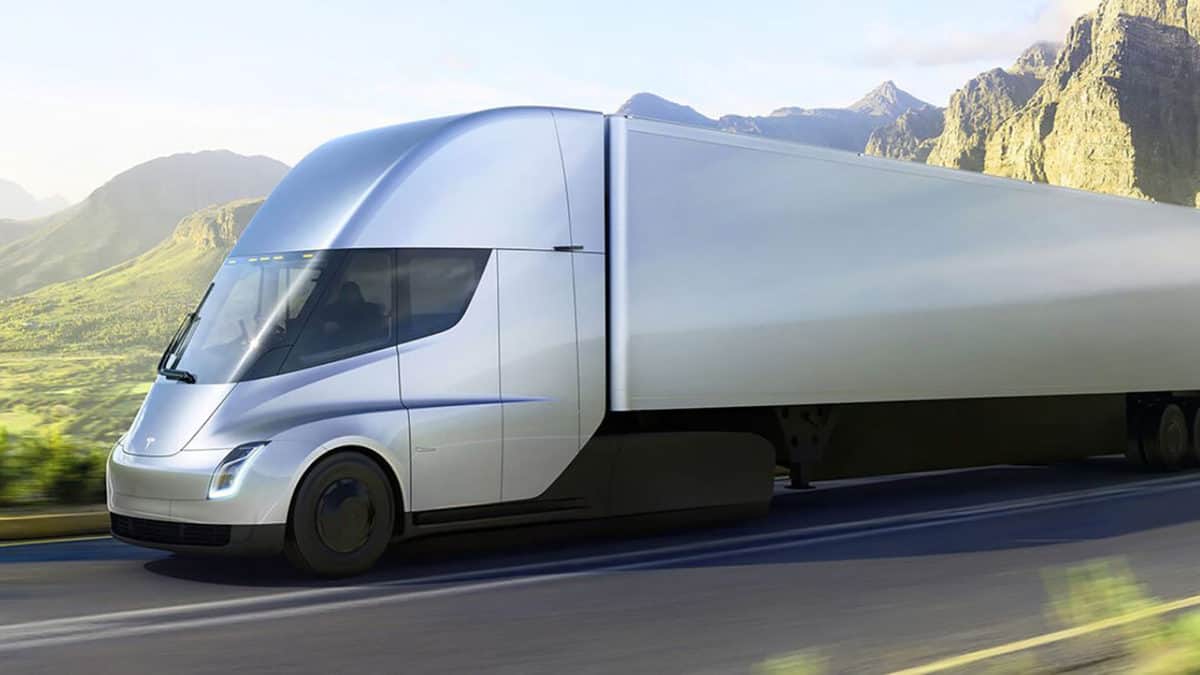
The Tesla Semi is an all-electric heavy-duty truck designed to revolutionize the transportation industry. It boasts impressive acceleration and range capabilities with a sleek and aerodynamic design. With advanced features like Autopilot, it aims to enhance traffic safety and efficiency on the road.
2. Nikola Two
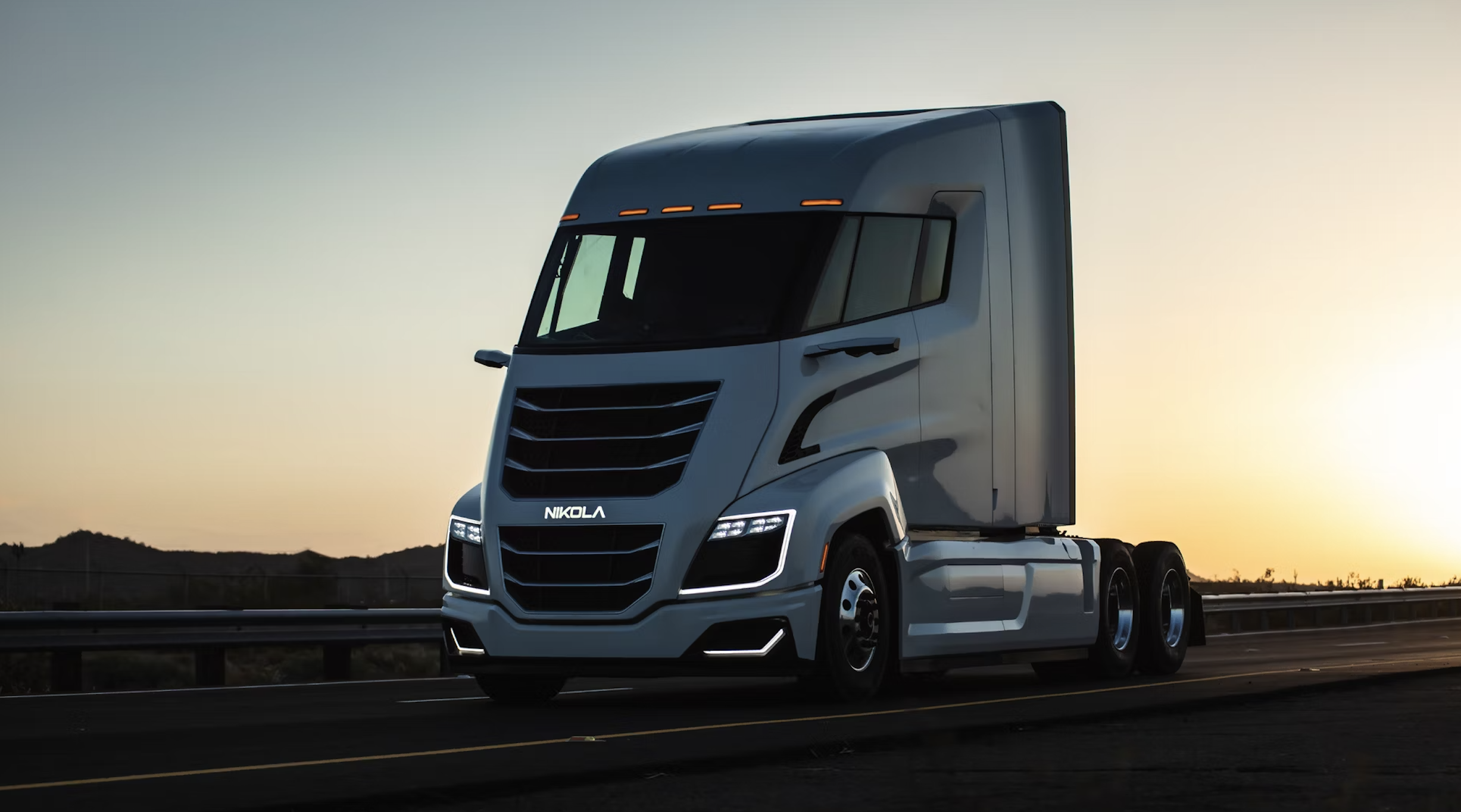
The Nikola Two is an electric truck designed for long-haul transportation. It features hydrogen fuel cell technology that provides extended range and quick refueling times. With zero emissions and advanced driver-assistance systems, the Nikola Two aims to deliver a sustainable and efficient heavy-duty trucking solution.
3. BYD T9
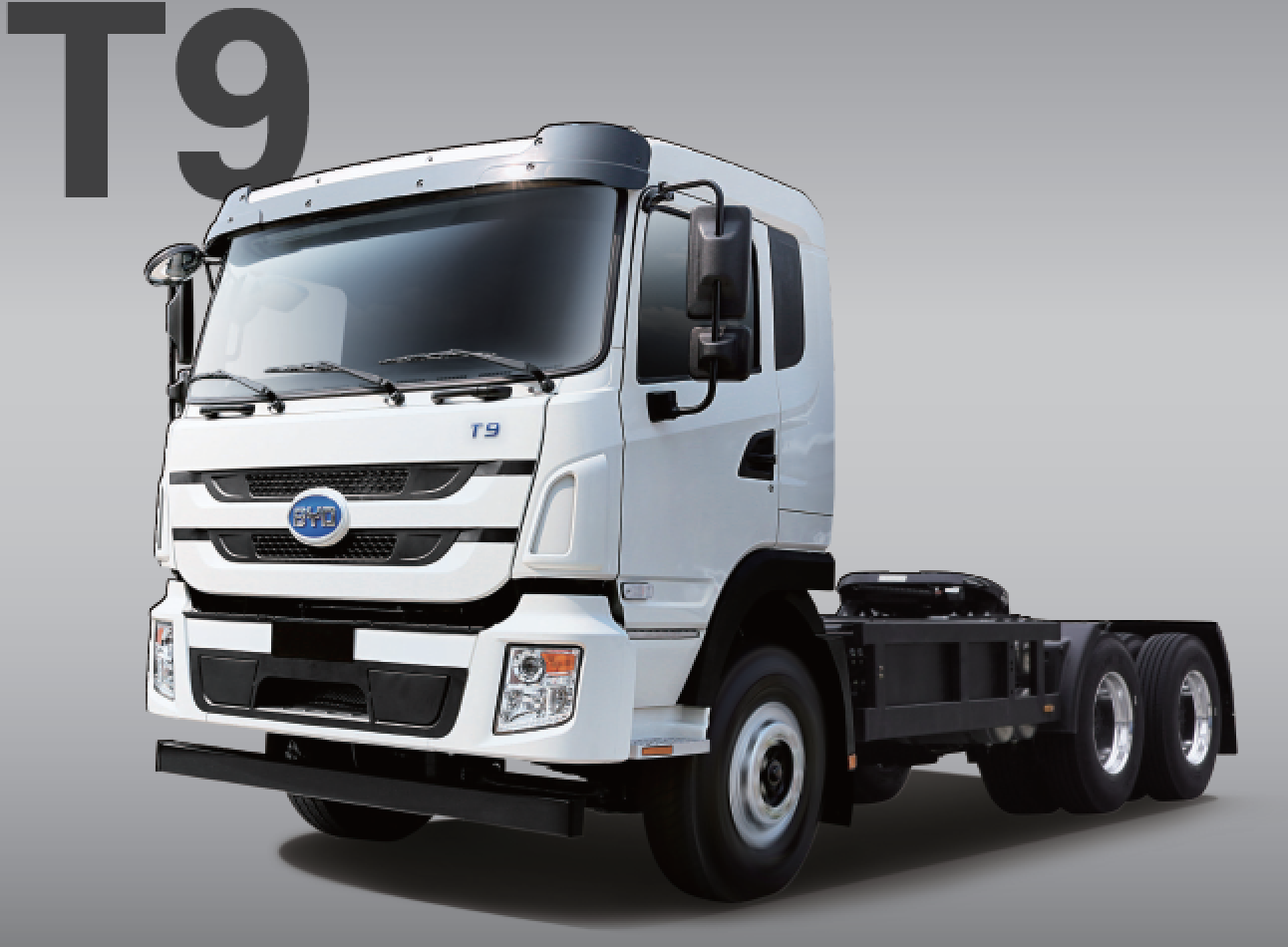
The BYD T9 is an upcoming electric truck that combines heavy-duty performance with environmental sustainability. It features a powerful electric drivetrain and offers a substantial payload capacity. With its advanced battery technology, the BYD T9 aims to provide a reliable and efficient solution for commercial trucking needs.
4. Daimler eCascadia
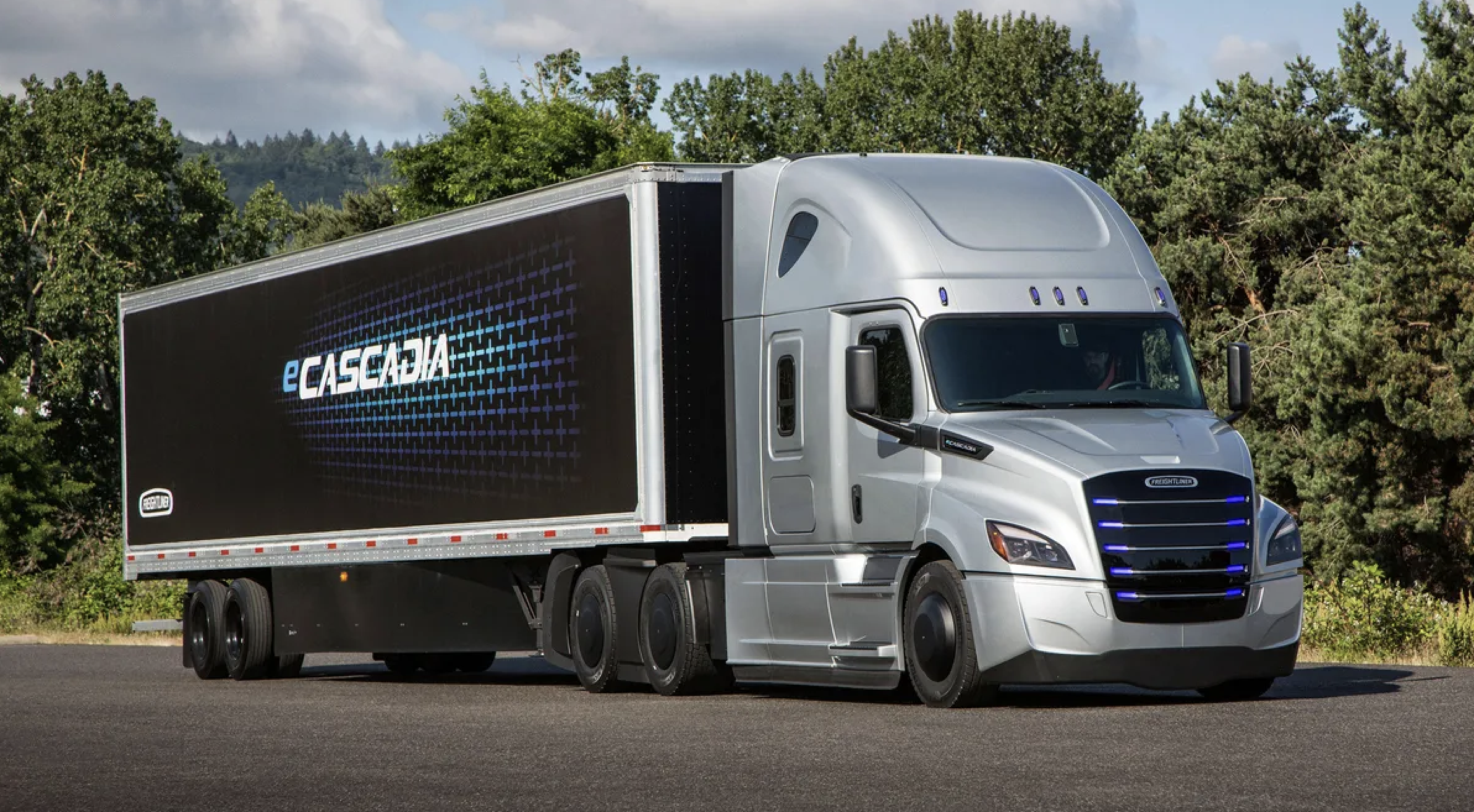
Daimler, the parent company of Freightliner, is planning to launch the eCascadia, an all-electric version of its popular Cascadia heavy-duty truck. With a range of up to 250 miles on a single charge, it aims to provide emission-free transportation for regional and local hauling operations.
5. Volvo VNR Electric
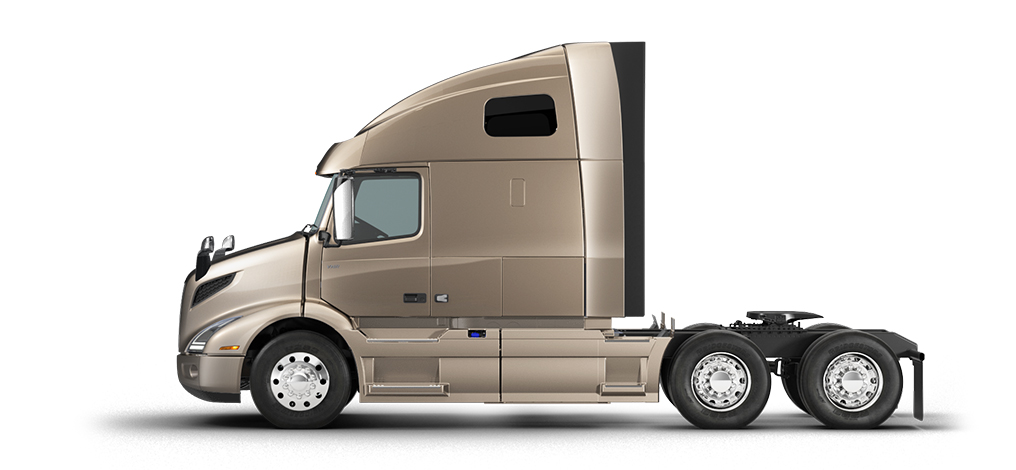
Volvo Trucks is introducing the VNR Electric, an all-electric heavy-duty truck designed for regional transport applications. With a focus on efficiency and reduced environmental impact, it offers a substantial driving range and quick charging capabilities, making it suitable for various logistical needs.
Which electric truck is your favorite?
Moving into the future, electric trucks are set to transform the transportation industry, offering a cleaner and more sustainable alternative to traditional diesel trucks.
In 2023, significant advancements will have been made in electric truck technology, addressing range limitations and expanding charging infrastructure.
The benefits of electric trucks, including environmental sustainability, cost savings, and improved efficiency, are driving their adoption across various sectors.
However, challenges related to infrastructure development, range anxiety, and workforce training remain.
By addressing these challenges and fostering collaboration among industry stakeholders, we can unlock the full potential of electric trucks, leading to a greener and more efficient transportation system in the years to come.
The future of trucking is electric, and the time to embrace this transformative shift is now.

The “Hidden” Paycheck: How Fuel & Maintenance Support Shape Real Net Pay
Learn how fuel costs, maintenance planning, and equipment efficiency impact real net pay in trucking and why the “hidden paycheck” matters in lease purchase programs.

Percentage vs. CPM: How to Choose the Right Pay Plan at Road Legends
Learn the difference between percentage pay and CPM in trucking. Understand break-even points, income stability, and how to choose the right pay plan for your driving style.

What Is a Walk-Away Lease in Trucking? The Advantage Most Drivers Miss
Learn what a walk-away lease in trucking is, how it differs from traditional lease purchase programs, and why many CDL-A drivers choose flexibility over long-term debt.

